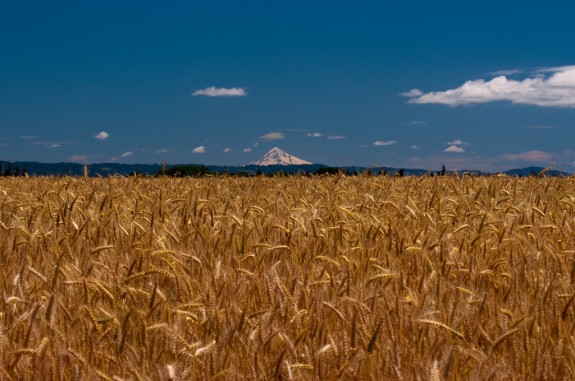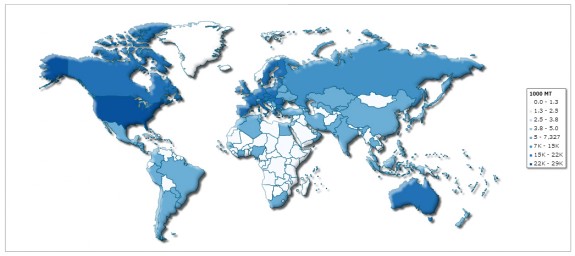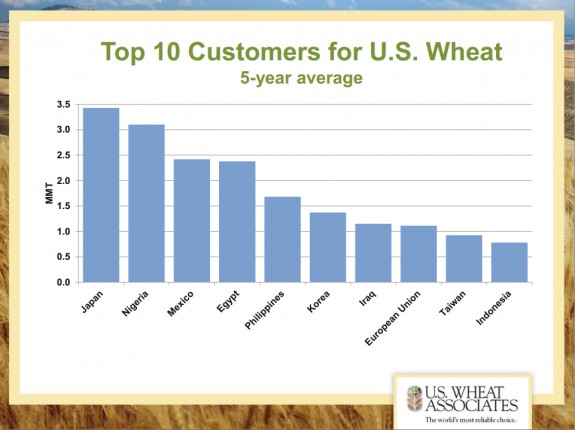Where Will Japan Get Wheat Now That It’s Rejecting America’s GMO-Tainted Crops?
Worried about genetically modified wheat found in the U.S. supply, countries are suspending their imports of U.S. wheat

A wheat field in Oregon. Photo: WebbShots
On Wednesday, The New York Times reported that unapproved genetically modified wheat was found growing on an Oregon farm. Developed as an experimental crop by Monsanto years ago, the strain of wheat was bred to be resistant to Monsanto’s herbicide Roundup. “Such wheat was field-tested in 16 states, including Oregon, from 1998 through 2005, but Monsanto dropped the project before the wheat was ever approved for commercial planting,” says the Times. Even so, an Oregon farmer found that it was growing in his field.
According to the F.D.A., says the Times, the wheat poses no risks to human health. Yet, the discovery of the modified wheat and the possibility that it may be growing elsewhere has prompted a number of countries that rely on U.S. wheat to suspend their supply. Japan, American’s biggest buyer of wheat, has “canceled plans to buy U.S. wheat,” says Reuters. South Korea, too, has suspended imports. The European Union plans to increase testing for the modified wheat. China and the Philippines plan to wait and see what happens.

Wheat exports by country, measured in millions of tons. Photo: Mundi Index
The purchase freezes are not only important for the U.S. economy, where wheat exports are an $8 billion business. The U.S. is the fourth largest producer of wheat in the world, but it is “consistently the world’s biggest wheat exporter,” accounting for between 20 percent and 30 percent of world exports annually.
And of all the wheat the U.S. produces, the country that buys the most is Japan. Japan gets just under 60 percent of its wheat imports from the U.S. On the whole, East and South-East Asia represent the second largest importers of wheat. North Africa and the Middle East are the most dependent on wheat imports.

U.S. wheat exports by country, 5 year average. Photo: U.S. Wheat Associates
So if Japan, South Korea and others turn off from American wheat, then where will it come from? Importers will have to depend on Canada, the European Union or eastern Europe to increase exports. (Step it up, Australia.) It’s all a delicate economic balance. U.S. farmers don’t want their wheat, genetically modified or not, to rot in storage, so they’ll try to sell it to countries that don’t care (or don’t have the option of caring) about this taint. Someone’s probably willing to pay for it.
More from Smithsonian.com:
What Will Convince People That Genetically Modified Foods Are Okay?
Food, Modified Food
/https://tf-cmsv2-smithsonianmag-media.s3.amazonaws.com/accounts/headshot/smartnews-colin-schultz-240.jpg)
/https://tf-cmsv2-smithsonianmag-media.s3.amazonaws.com/accounts/headshot/smartnews-colin-schultz-240.jpg)